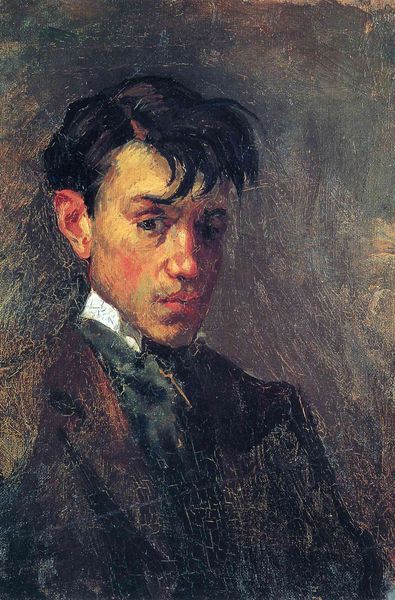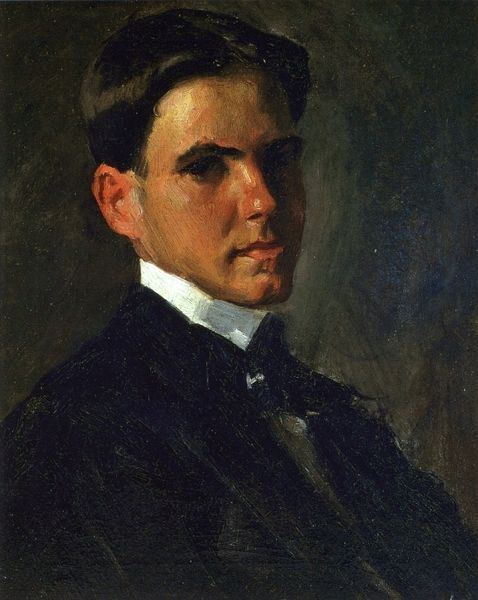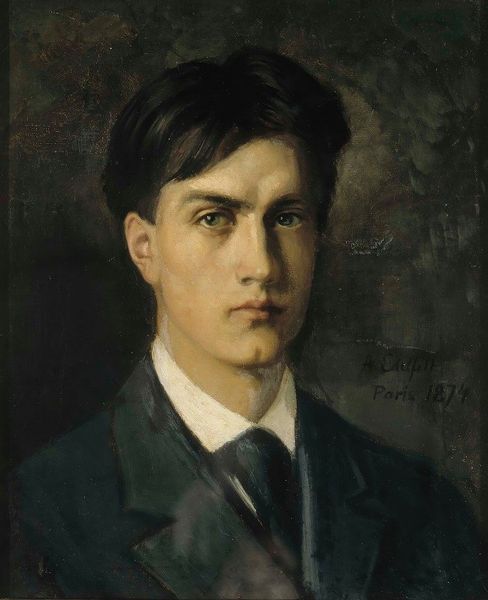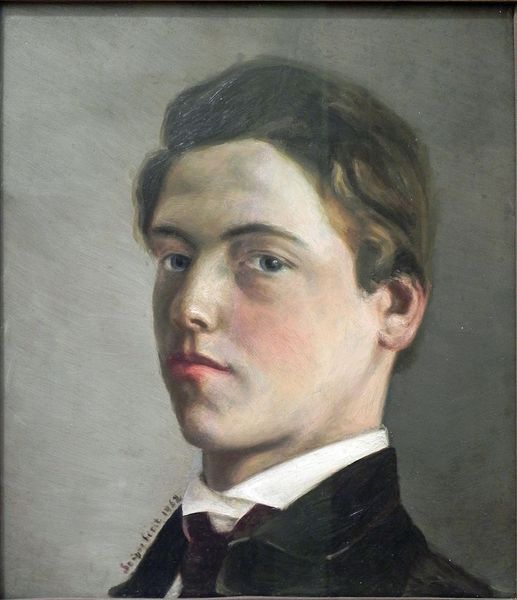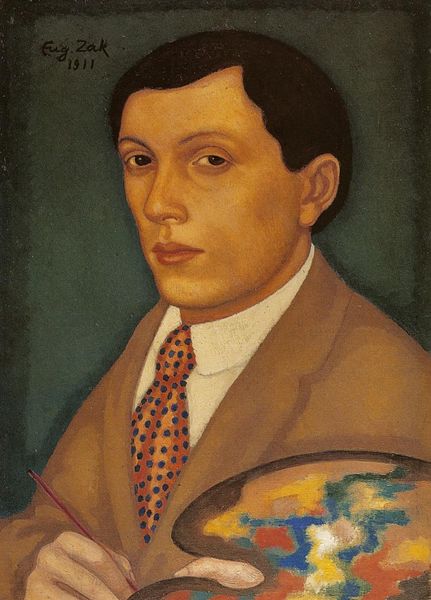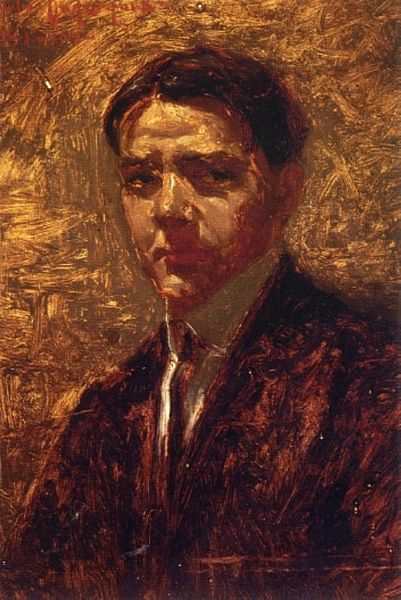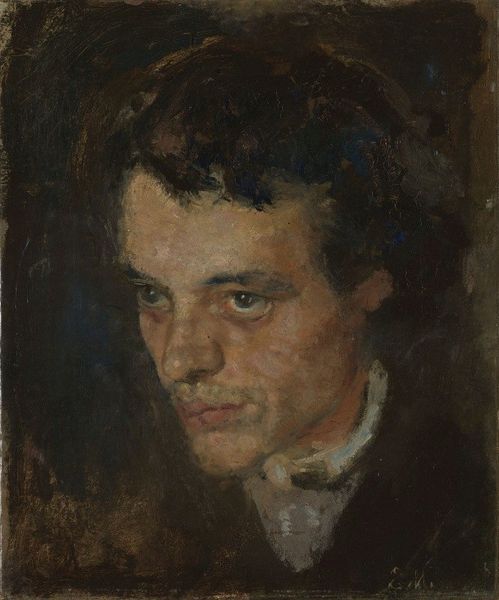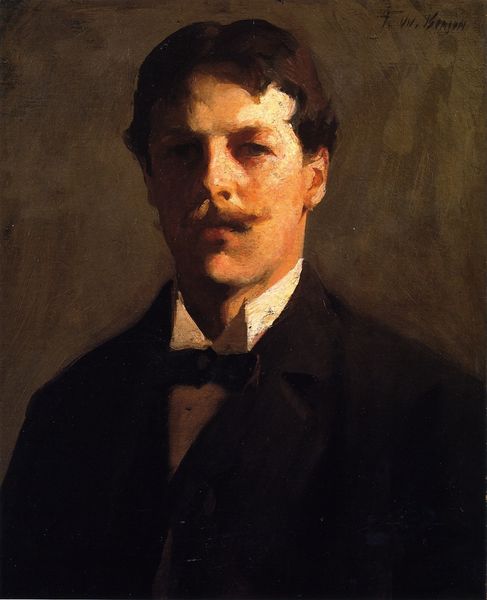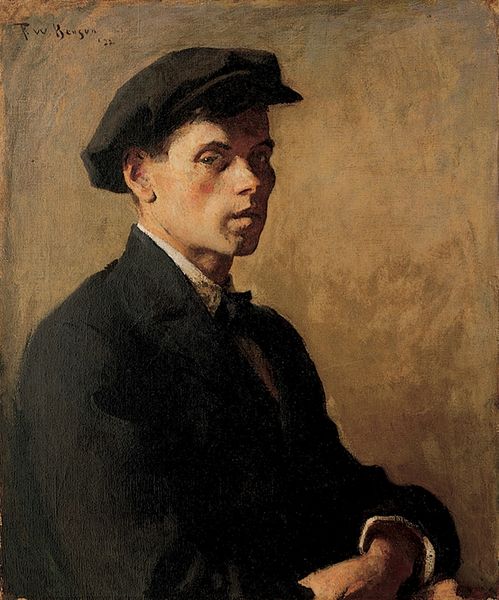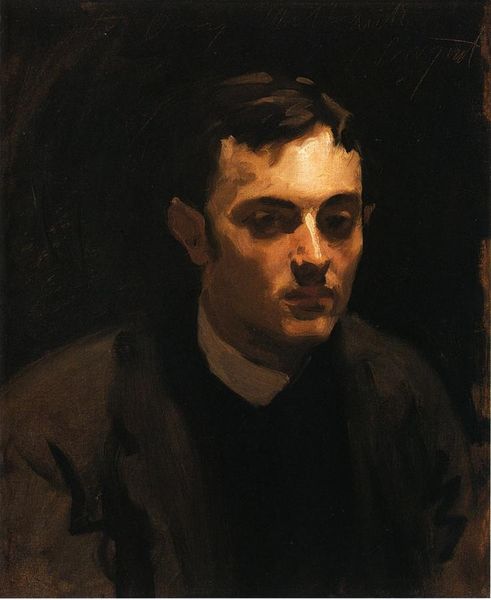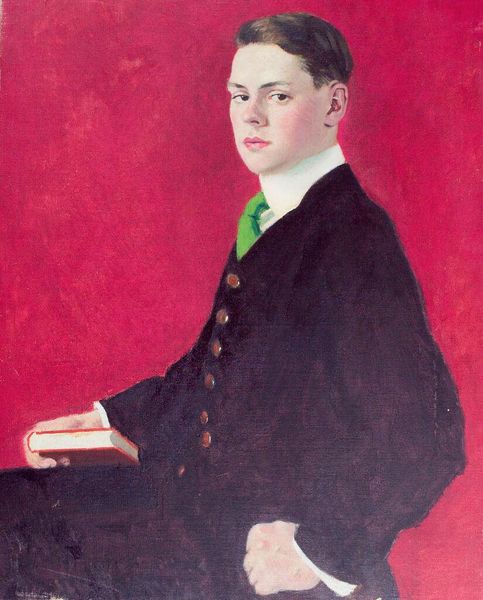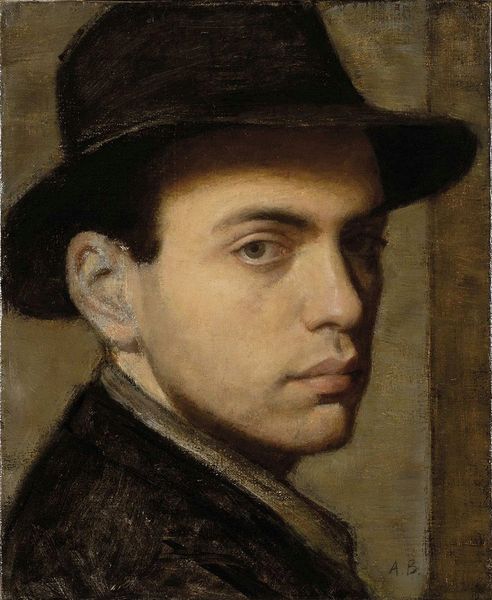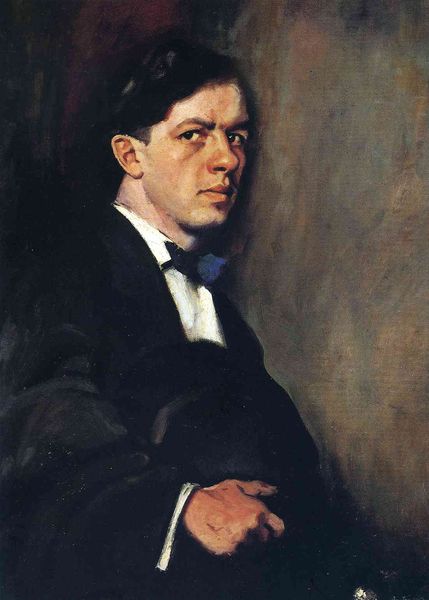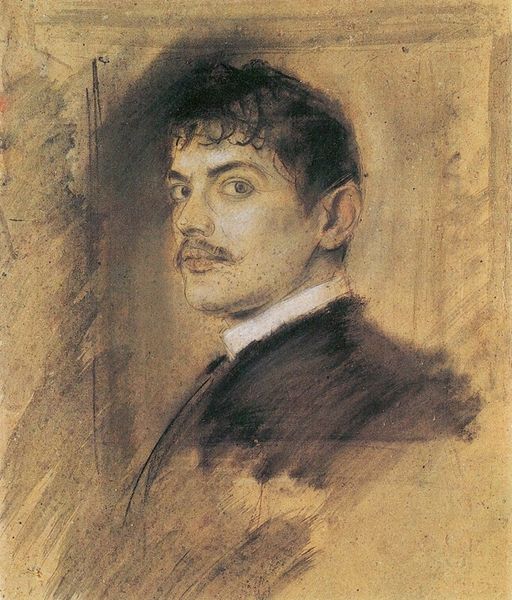
painting, oil-paint
#
portrait
#
self-portrait
#
painting
#
oil-paint
#
expressionism
Dimensions: 54.2 x 35.4 cm
Copyright: Public domain
Curator: Let's turn our attention to this intense "Self-Portrait" completed in 1906 by August Macke. Oil paint is brought to life with swift brushstrokes. Editor: He looks… serious. A bit melancholic, maybe? The heavy shadows really amplify that sense. I almost want to reach out and ruffle his hair, tell him to lighten up! Curator: It is true that his face communicates a lack of self-satisfaction and even a sense of emotional distress. Observe how his features are soft. We are clearly looking at an artistic type. In many cultures, a melancholic state is equated with intellectuality and creative awareness. The heavy chiaroscuro in play highlights that quality of thoughtfulness. Editor: Absolutely, but you also sense a vulnerability there, peering out from under those shadows. It’s funny, you see countless self-portraits of artists striking these incredibly dramatic poses, and here's Macke, looking like he just rolled out of bed and thought, "Oh, right, I should probably paint myself." It is such a rare sincerity to have someone not romanticize themself, I guess. Curator: Sincerity is at the heart of any attempt at portraiture. Macke is best known for his contributions to the German Expressionist movement, so we see here how his interest in subjectivity transcends realistic approaches. There’s an attempt here to communicate directly some aspect of emotionality through composition, light and dark values, the very brushstrokes. It is almost as if the work of art intends to offer the most transparent portal into an affective and cognitive landscape, with cultural memory acting as a powerful conduit between viewer and artist. Editor: Well, I think it’s that "unposed" quality that gets me. This isn't about portraying a powerful man or some grand ideal; it’s just a glimpse into someone's inner world at a specific moment. You've also noticed it—and it feels strangely universal. He probably captured something we have all experienced, that strange discomfort, especially that you tend to feel during periods of great transition. Curator: Macke, of course, did experience so many major changes in style. The painting shows that there is potential locked in what's personal; by capturing that feeling, Macke manages to preserve himself in his self-portrait, with expressionism allowing us to experience our connection to humanity as the painting ripples outward and onward. Editor: Maybe that's what good art really does—makes the internal, external. In some weird way I find it deeply comforting.
Comments
No comments
Be the first to comment and join the conversation on the ultimate creative platform.
